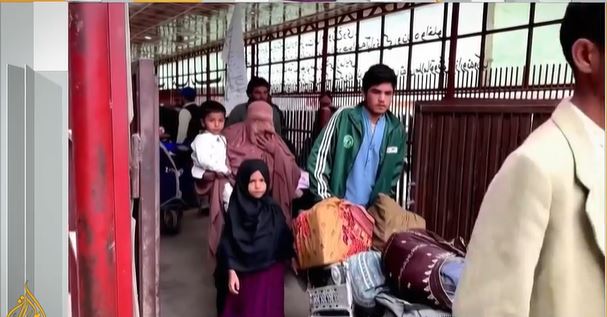
Pakistan is set to start the second phase of a controversial plan to send undocumented Afghan refugees back to their country.
Beginning Sunday, authorities are likely to expel more than 800,000 Afghans from the country, after about 541,000 were forced to leave in the first phase in November last year.
If they do not leave voluntarily, the refugees face arrest and deportation.
Before the first phase of repatriation, the Pakistani government claimed there were nearly 4.4 million Afghan refugees, out of which an estimated 1.73 million were undocumented.
The government has defended the crackdown, citing security concerns and a struggling economy.
The deportation order came amid a dramatic increase in armed attacks across Pakistan, with the government attributing the attacks to groups and nationals based in Afghanistan, an allegation the Taliban government in Afghanistan rejected.
Philippa Candler, the representative of the United Nations High Commissioner for Refugees (UNHCR) in Islamabad, told Al Jazeera that Pakistan should look at the profiles of the undocumented Afghans before expelling them, as many of them were “in need of international protection”.
“They’re refugees. They’re not involved in terrorist activities. They’re just people who fled and who need protection,” said Candler, adding that if any Afghan nationals were involved in terrorist activities, “it should be dealt with separately”.
“They complain that their houses are being raided in the dead of the night. They’ve been forced to leave this country in a very miserable condition,” Hyder said, adding that it was “very difficult to leave after spending a lifetime in a country and then being forced out”.
Pakistan is not a signatory to the 1951 UN convention that protects the rights of the refugees. The country also lacks domestic laws to protect the refugees as well as procedures to determine the status of individuals seeking international protection within its borders.
Rights group Amnesty International has warned of the risk of persecution for the refugees returning to Afghanistan.
source : aljazeera
